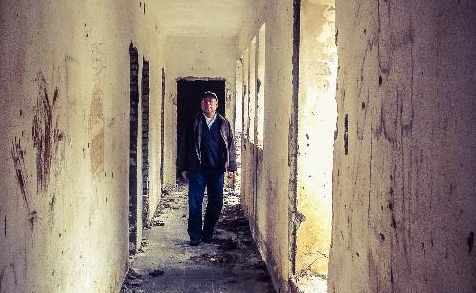Monuments Fund has announced the former notorious Spaç prison for the politically persecuted under communism located in northern Albania as one of the world’s 50 at-risk cultural heritage sites.
“Spaç Prison, the notorious labor camp, is in an extremely advanced state of deterioration, and deserves to be transformed into a modern place of remembrance,” said the organization in its 2016 World Monuments Watch.
A notorious labour camp in communist Albania, the organization describes the forgotten site as a powerful place of memory that deserves to be preserved for future generations.
Albania’s Spaç Prison, in operation from 1968 until the early 1990s when the communist party fell, is now in an extremely advanced state of deterioration. “The inclusion of Spaç Prison on the 2016 Watch recognizes a new effort involving institutions, civil society, and private citizens—including former political prisoners—to create a modern institution of remembrance out of the prison’s remains.”
As no other site currently exists as a place of memory for former political prisoners in Albania, there is a pressing need to advance knowledge, raise public awareness, and create a demand for the transformation of this site into a center of remembrance and education, says the organization.
“The World Monuments Fund looks forward to working with the local experts, organizations, and government agencies who have nominated these sites. We hope our endorsement will advance their goals to save each of these cherished places,” said WMF President Bonnie Burnham.
Spaç Prison
Spaç Prison was a notorious labor camp established in 1968 by the communist government of Albania at the site of a copper and pyrite mine, in a remote and mountainous area in the center of the country. While only one of many such sites, the political prisoners held at Spaç included some of the most prominent Albanian intellectuals of the twentieth century, granting it a special place in the collective memory of that era. The site of the labor camp, on a terraced slope below the tunnel entrances to the mine, was so remote and unforgiving that no perimeter wall was needed to secure the complex, only barbed wire fencing punctuated by occasional guard posts and a front gate. The French-Albanian artist Maks Velo, who was taken into custody in 1978 and sentenced to ten years imprisonment at Spaç, later described it as “the most terrible camp in Europe and I think in the world during this period.”
In May 1973, Spaç Prison became the site of a famed prisoners’ revolt, one of the first moments of resistance to the oppression of the regime. Nevertheless, Spaç continued to operate as a labor camp until the fall of the communist party from power in the early 1990s. It was completely abandoned several years later. Today, even though it has been designated as a heritage site, the complex is in an extremely advanced state of deterioration due to the elements and the abandoned and vacant buildings have lost almost all of their fixtures, says the World Monuments Fund.
“Spaç Prison, the notorious labor camp, is in an extremely advanced state of deterioration, and deserves to be transformed into a modern place of remembrance,” said the organization in its 2016 World Monuments Watch.
A notorious labour camp in communist Albania, the organization describes the forgotten site as a powerful place of memory that deserves to be preserved for future generations.
Albania’s Spaç Prison, in operation from 1968 until the early 1990s when the communist party fell, is now in an extremely advanced state of deterioration. “The inclusion of Spaç Prison on the 2016 Watch recognizes a new effort involving institutions, civil society, and private citizens—including former political prisoners—to create a modern institution of remembrance out of the prison’s remains.”
As no other site currently exists as a place of memory for former political prisoners in Albania, there is a pressing need to advance knowledge, raise public awareness, and create a demand for the transformation of this site into a center of remembrance and education, says the organization.
“The World Monuments Fund looks forward to working with the local experts, organizations, and government agencies who have nominated these sites. We hope our endorsement will advance their goals to save each of these cherished places,” said WMF President Bonnie Burnham.
Spaç Prison
Spaç Prison was a notorious labor camp established in 1968 by the communist government of Albania at the site of a copper and pyrite mine, in a remote and mountainous area in the center of the country. While only one of many such sites, the political prisoners held at Spaç included some of the most prominent Albanian intellectuals of the twentieth century, granting it a special place in the collective memory of that era. The site of the labor camp, on a terraced slope below the tunnel entrances to the mine, was so remote and unforgiving that no perimeter wall was needed to secure the complex, only barbed wire fencing punctuated by occasional guard posts and a front gate. The French-Albanian artist Maks Velo, who was taken into custody in 1978 and sentenced to ten years imprisonment at Spaç, later described it as “the most terrible camp in Europe and I think in the world during this period.”
In May 1973, Spaç Prison became the site of a famed prisoners’ revolt, one of the first moments of resistance to the oppression of the regime. Nevertheless, Spaç continued to operate as a labor camp until the fall of the communist party from power in the early 1990s. It was completely abandoned several years later. Today, even though it has been designated as a heritage site, the complex is in an extremely advanced state of deterioration due to the elements and the abandoned and vacant buildings have lost almost all of their fixtures, says the World Monuments Fund.


